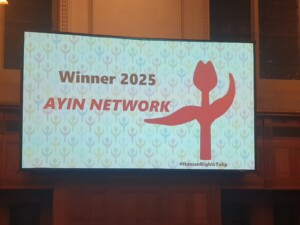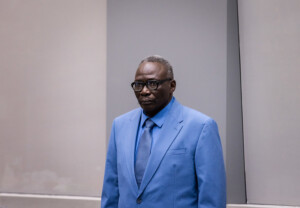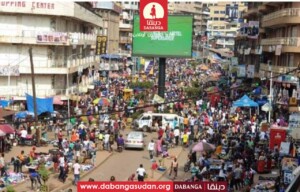Peace talks between Sudan govt and armed movements to resume in Juba
Peace talks between the Sudanese government and a number of armed movements will resume in the South Sudanese capital Juba today. Five armed movements factions agreed to form the Sudanese Alliance for Change on Saturday.
 The Sudanese government delegation arrives in the South Sudanese capital for peace talks, Juba, October 13, 2019 (RD)
The Sudanese government delegation arrives in the South Sudanese capital for peace talks, Juba, October 13, 2019 (RD)
Peace talks between the Sudanese government and a number of armed movements will resume in the South Sudanese capital Juba today. Five armed movements factions agreed to form the Sudanese Alliance for Change on Saturday.
At the invitation of South Sudanese President Salva Kir, leaders of the Sudan People’s Liberation Movement-North faction led by Malik Agar (SPLM-N Agar), the Justice and Equality Movement, the Sudan Liberation Movement faction under the leadership of Minni Minawi (SLM-MM), and the SLM-Transitional Council, allied in the Sudan Revolutionary Front, and the SPLM-N faction led by Abdelaziz El Hilu in the Nuba Mountains arrived in Juba this weekend, to begin talks today.
The negotiations will begin with an inaugural session, to be attended by the chairman of Sudan’s Sovereign Council, Abdelfattah El Burhan, South Sudan’s President Salva Kiir, as well as the presidents of Kenya, Uganda and Ethiopia.
In the Juba Declaration of Principles, signed by the Sudanese government and the rebel movements on September 11, it was agreed to begin negotiations mid-October for a period of thirty days, a comprehensive ceasefire by the two sides, the abolition of death sentences facing leaders of armed movements, and the release of prisoners of war.
Sudanese delegation
The Sudanese delegation to the peace negotiations, headed by the deputy chairman of the Sovereign Council Lt Gen Mohamed Hamdan ‘Hemeti’, arrived in Juba yesterday. It includes members of the Sovereign Council Lt Gen Shamseldin Kabashi, Lt Gen Yasir El Ata, Mohamed El Taayshi, and Mohamed El Faki, as well as Minister of Cabinet affairs Omar Manis, Minister of Federal Government Yousef El Dei, and the chairman of the Peace Commission, Suleiman El Debeilo, who has also been appointed as Rapporteur of the High Peace Council by the government on Saturday.

High Peace Council
The High Peace Council, chaired by Lt Gen Abdelfattah El Burhan, comprises all members of the Sovereign Council, the Prime Minister, the Minister of Cabinet Affairs, the Minister of Justice, and the Minister of Federal Government, as well as three experts.
As stipulated in Chapter XV of the Constitutional Declaration, the High Peace Council will deal with issues of comprehensive peace and pursue the dialogue on core issues with all parties to complete the peace process. It will also take confidence-building initiatives and develop public policies related to addressing the roots of the problem in order to achieve a just peace.
Sudanese Alliance for Change
After five days of meetings in the Ethiopian capital Addis Ababa, five armed movements factions agreed to form the Sudanese Alliance for Change on Saturday.
The new alliance includes the United Revolutionary Forces Front, the Justice and Democratic Equality Movement, the New Justice and Equality Movement, the National Movement for Reform and Development, and Kordofan Group for Development. Mansour Arbab was chosen as the head of the alliance, El Hadi Ajabeldoor became secretary-general, and Siddig Hammad the spokesman. An organisational structure was agreed upon.
The meetings were held under the auspices of the African International Peace Institute in Brussels.
According to a statement on Saturday, the alliance came “within the framework of seeking to unify the visions of the armed movements, to meet the current challenges, and discuss how to participate in the reconstruction of Sudan after the fall of the National Congress Party regime, realised by the victorious revolution that prevailed in all cities, towns, and rural areas of the country”.
Our editorial independence means that we can continue to provide factual updates about political developments to Sudanese and international actors, educate people about how to avoid outbreaks of infectious diseases, and provide a window to the world for those in all corners of Sudan. Support Radio Dabanga for as little as €2.50, the equivalent of a cup of coffee.












 and then
and then